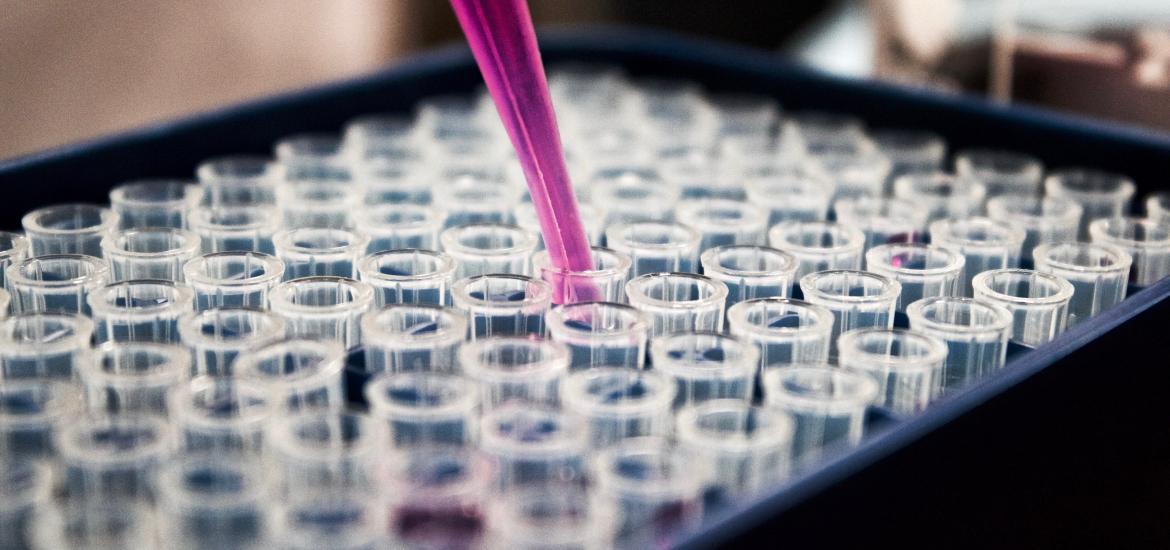
Astra goes pivotal with CTLA-4
Liver toxicity notwithstanding, volrustomig will start a phase 3 lung cancer study versus Keytruda imminently.
Liver toxicity notwithstanding, volrustomig will start a phase 3 lung cancer study versus Keytruda imminently.

At its full-year financials meeting in February AstraZeneca had promised that 2023 would see no fewer than five pivotal studies begin for its anti-PD-1 x CTLA-4 bispecific volrustomig, and this week the first of these appeared on clinicaltrials.gov.
The phase 3 study, denoted Evolve-Lung02, will pit volrustomig head to head against Merck & Co’s Keytruda, on top of chemo, in front-line lung cancer patients who do not express high levels of PD-L1. Given that just a year ago Astra was saying that volrustomig was causing liver enzyme elevations, investors have to hope that this and any other toxicity concerns have been ironed out fully.
It is understandable that the group is pursuing CTLA-4 blockade, but doing so through a bispecific MAb is rather unusual, given the fixed pharmacokinetic and dosing characteristics that this entails. Astra last year secured US approval for Imjudo, only the second anti-CTLA-4 MAb to reach the market – after two decades of clinical development, and 11 and a half years after launch of the first drug with this mechanism, Bristol Myers Squibb’s Yervoy.
For a bispecific precedent you need to look to China, where Akeso’s Kettany (cadonilimab) was approved for second-line cervical cancer in mid-2022. This remains the only drug with a dual PD-1 x CTLA-4 mechanism sold worldwide.
Conditional binding
Volrustomig, which Astra had earlier coded MEDI5752, only binds CTLA-4 in the presence of PD-1, something that preclinically had apparently shown a better safety profile than hitting these targets using separate MAbs. CTLA-4 inhibition is known to be highly toxic, and Yervoy and Imjudo’s labels both carry warnings of severe and possibly fatal immune-mediated adverse reactions.
Evolve-Lung02 will combine volrustomig with chemo and compare this versus Keytruda plus chemo in 900 first-line NSCLC patients. Curiously, though the study will enrol patients expressing PD-L1 at below 50%, the co-primary endpoints of overall and progression-free survival are in “PD-L1 negative” subjects, according to the clinicaltrials.gov entry.
The regulatory landscape in first-line metastatic NSCLC is somewhat complex. Keytruda plus chemo is approved irrespective of PD-L1 expression, as is Sanofi’s Libtayo plus chemo, Opdivo plus Yervoy plus chemo, and Astra’s Imfinzi plus Imjudo plus chemo. Keytruda monotherapy, and Opdivo plus Yervoy, have green lights only in patients expressing PD-L1 at ≥1%, while Roche’s Tecentriq can be used in PD-L1 ≥50% expressers.
Thus Astra’s logic seems to be to target the most economically attractive segment of this market, where anti-PD-(L)1 monotherapy cannot be used. That said, Keytruda plus chemo will pose a high bar: the relevant comparators in PD-L1-negative patients are median OS of 15.9 months in Keynote-407 (squamous histology) and 17.2 months in Keynote-189 (non-squamous).
TIGIT
Evolve-Lung02 is not expected to start dosing until November, and nothing is yet known about the other four pivotal volrustomig trials.
Moreover, Astra has also promised to go pivotal with a separate bispecific against PD-1 and TIGIT, called rilvegostomig/AZD2936. Rilvegostomig is derived from work with Compugen, and entered the phase 1 Artemide-01 NSCLC trial in 2021, data from which are expected next year.
However, nothing is yet known about any phase 3 studies with rilvegostomig. Any caution here on Astra’s part is understandable given the ongoing uncertainty of the viability of TIGIT blockade.
AstraZeneca's bispecific promise
| Project (mechanism) | Ongoing trials | Possible data redout | Pivotal plan |
|---|---|---|---|
| Volrustomig (PD-1 x CTLA-4) | Advanced renal cell carcinoma, + Inlyta or Lenvima; advanced solid tumours, +/- chemo | 2024 | Five phase 3s planned in 2023 across key tumour types vs SOC regimens, incl Evolve-Lung02 in 1st-line NSCLC |
| Rilvegostomig (PD-1 x TIGIT) | Artemide-01 (NSCLC monotherapy in checkpoint-experienced and naive patients) | 2024 | Phase 3 planned in 2023 |
| AZD7789 (PD-1 x Tim3) | NSCLC and other tumours; r/r Hodgkin lymphoma | >2024 | None |
Source: AstraZeneca 2022 full-year results meeting.
980













